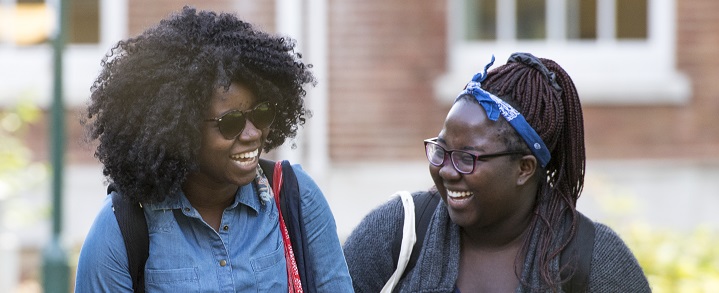
Maintaining our relationships is essential for helping us get through this time but self-isolation, social distancing and other concerns can make this challenging.
Identify 5 top tips for nurturing healthy relationships
-
put more time aside to connect with your friends and family
-
this means really paying attention to the other people in your life and trying not to be distracted by your phone or your work or other interests
-
really listen to what others are saying and try to understand it and to focus on their needs in that moment
-
honestly share how you are feeling, and allow yourself to be heard and supported by others
-
harmful relationships can make us unhappy. Recognising this can help us to move forward and find solutions
Relate provides blogs, advice and tips for helping your relationships stay healthy during the pandemic.
Reach out, check in - a new initiative by your Students' Union Welfare and Wellbeing Officer
Life is pretty different at the moment. There are restrictions on being able to meet friends in person, a lot more students are studying off-campus and we’re faced with the challenge of adapting to new situations. This has an undeniable effect on how we socialise and means it’s totally valid to be feeling more alone or isolated than normal.
That’s why the Students' Union are launching the ‘Reach out, check in’ campaign with a very simple message: to encourage you to reach out and check in on those around you. Contacting a friend you haven’t spoken to in a while takes five minutes out of your day but can make the world of difference.
Find out more information here.
Unhealthy relationships and Domestic violence
Domestic abuse takes place within relationships or families where one person bullies or controls another. Abuse can affect people across society regardless of age, gender, race, sexuality, wealth and geography.
Abuse may take many forms: stalking, sexual assault, rape, harassment, physical assault, emotional abuse such as being prevented from seeing your friends and financial factors such as not having sufficient control over your money, coercion and control.
Here is the NHS guidance on getting help and support for domestic violence, including:
If you are concerned that you are experiencing abuse you should contact the Police by ringing 101, or if it is an emergency, 999.
If you are local to Nottingham you can also access support from specialist support services listed below.
Support in Nottingham
University Support
If you are feeling unsafe in the place where you are residing, as well as getting help from the above services, please also consider contacting the University, as we will be able to offer you additional advice and support.
You may feel unsafe from family members or a partner or ex-partner or it may be a friendship which has become difficult. Relationships with friends can also become unhealthy and abusive, and whilst this may not be identified as domestic abuse, can impact negatively on students’ well-being and safety. This can particularly be the case when students are sharing accommodation. If you are worried that a housemate or close friend is causing you harm, please contact the University for advice and support.
It can be hard to understand if the problems you are experiencing are abuse and this can be a barrier to seeking help. If you are concerned that you have experienced harassment or abuse and are not sure what to do, please speak to one of our services so that we can help you better understand what is happening and discuss the support options available with you.
University services that are here to help:
- University Security service continues to provide a 24 hour presence on all campuses. They are a point of contact and support for students who are feeling at risk wherever that student is living. You can contact Security Control at any time, however if it is urgent, please use the emergency number.
- The Support and Wellbeing Officers can provide guidance, help and advice if you're experiencing difficulties and help identify other services that you may need to contact.
- If you are living off campus and need support with issues such as self-isolation or other community concerns you may benefit from support from the Off Campus Affairs Team.
- The University Counselling Service offers free, confidential support to students registered at The University of Nottingham. You can self-refer for counselling on line but if you need more urgent advice about your situation, you may need to contact the duty counsellor who is available during the working week and can be contacted by e mailing the service.
Other forms of abuse or harassment
The information below provides comprehensive advice to help you identify, seek help and report abuse you may be experiencing.
Lets be clear on consent is a University initiative that provides students with information about sexual violence. It includes information on sexual assault services available in Nottingham and how to report any incident of sexual violence to the University.
Harassment reporting: If you have been subject to harassment, abuse or assault, please report this by emailing us directly at harassment@nottingham.ac.uk.
National support
For a comprehensive list of available support go to NHS webpage and Equation
Other support
Stand Alone offers support services to prevent estranged adults becoming vulnerable.
Propel is a website for care leavers providing information on the support available to you at colleges and universities across the UK.